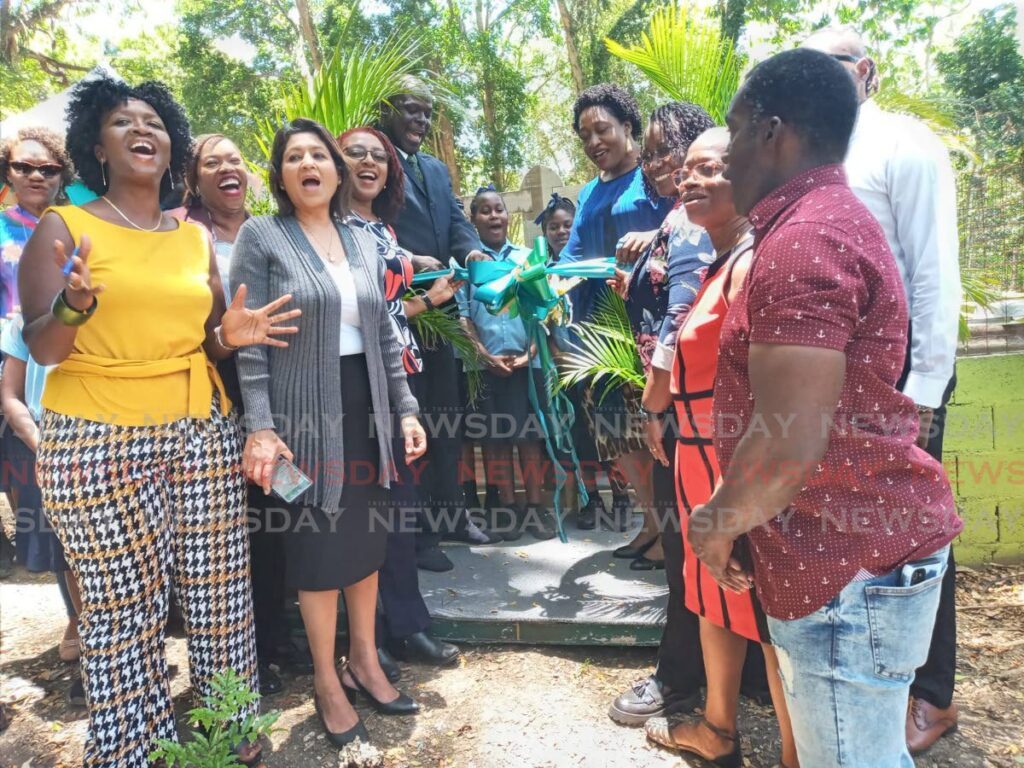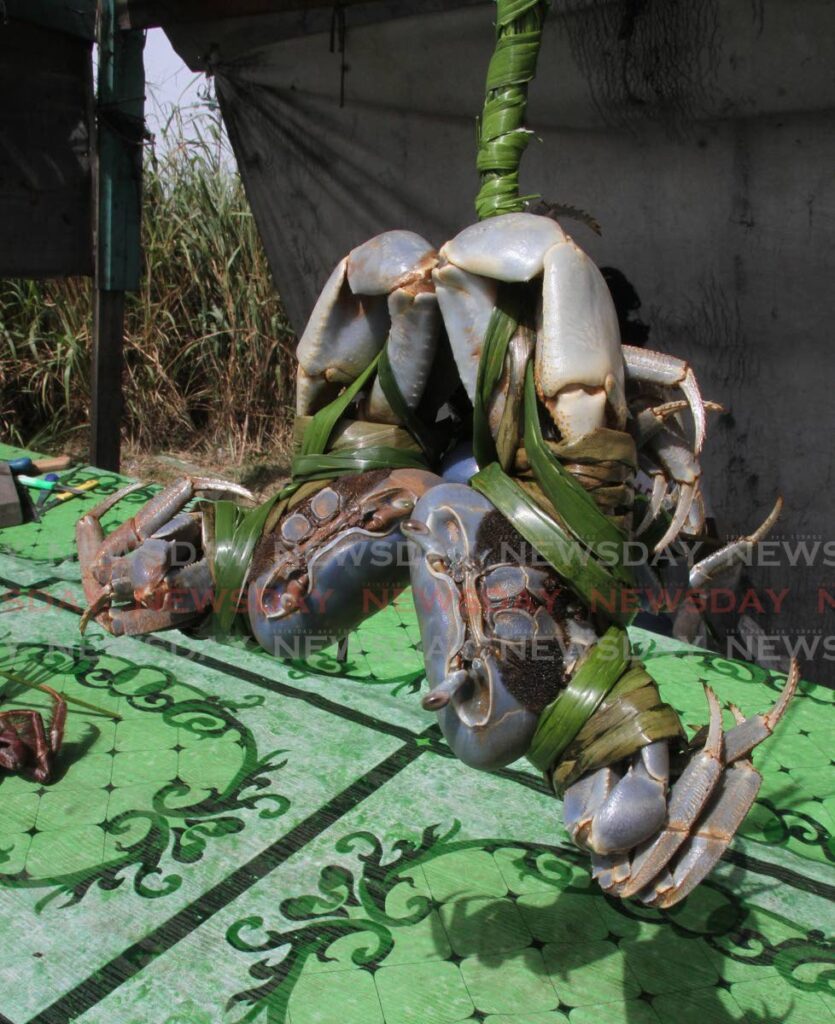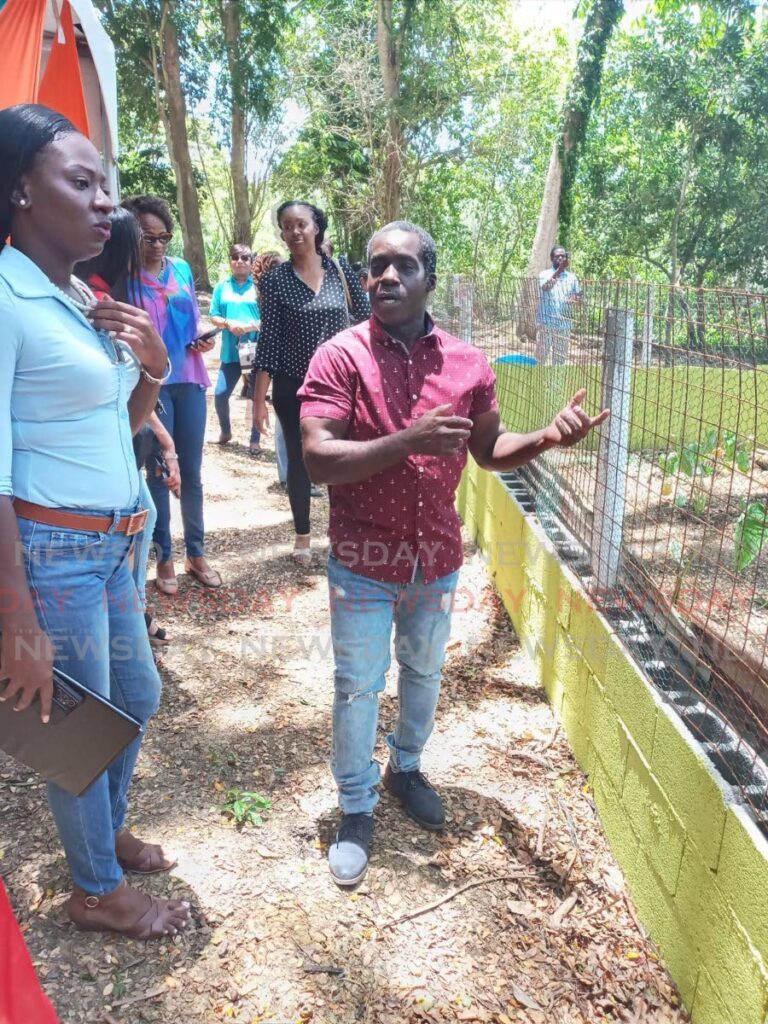Tobago boasts of country's first blue crab farm

Curried crab and dumplings is a dish synonymous with Tobago and crab racing is one of the novel events it hosts during the Easter holidays.
Now the island has created history with the launch of the first crab farm at the Buccoo Historical Park and Nature Centre, Tobago on April 12.
The project is the brainchild of the Canaan/Bon Accord Sport Club in collaboration with the Canaan/Bon Accord/Crown Point Committee on Sustainable Community Development. It was funded by the Digicel Foundation and Shell TT.
The groups also worked closely with the THA Division of Community Development, Youth Development and Sport and the policy unit of the Ministry of Sport and Community Development.
In her remarks at the official launch of the project, Cindy-Ann Currency, head of operations, at the Digicel Foundation, said the club secured $100,000 through the company’s Extraordinary Projects Impacting Communities (EPIC) grant for 2024.
The grant was set up several years ago for communities to implement projects in three categories: Renewable Energy, Agriculture and the Environment.

Currency said during the period 2023-2024, Digicel got over 100 applications for grants from communities.
She said after a robust shortlisting process, “we were able, thrilled and proud to align our brands with this one-of-a-kind sustainable initiative, led by the Canaan/Bon Accord Sports Club.”
Currency said the project is essentially an agro-entrepreneurship initiative to rear, process, package and sell blue shell crabs and crab meat.
She added the team shared its vision to produce high-quality crab meat and crab products for the local, regional and international markets.
Currency said the Tobago crab farm is an example of what can be achieved with innovation and a passion for community development.
Kelton Thomas, a member of the Canaan/Bon Accord/Crown Point Committee on Sustainable Development, explained the thinking behind the project.

He said over the years, they have noticed that the size of blue crabs sold in markets has become smaller.
As such, Thomas said the groups embarked on a plan to breed the crabs in captivity.
“When they have attained marketable size, we will weigh them and measure them and hopefully we can use it as a standard size for crabs being sold in the marketplace,” he said.
Thomas said the group dug two ponds in an area of the park to farm the crabs.
“We released male and female crabs within the pond to allow them to excavate their own burrows and after mating they will go into their burrows. When they do reappear they will go into the second pond that we have dug to wash their eggs out.”
He envisages the first or second hatch will produce 100,000 crabs. He said more ponds will be constructed as the project develops.
Thomas said they also intend to sell crab meat.
“Traditionally, the crab is cooked with its shell for curried crab with dumplings and ground provision. We are hoping to extract the crab meat as well and sterilise the crab back, pack the meat into the crab back and have it sold as pure Tobago blue crab meat.”
The committee’s chairman Wade David said the project will benefit the community economically.
“The crab farm is geared towards creating jobs for people and it will target local crab catchers. But we do not want people to feel that we are taking away livelihoods from people,” he said.
“We just want to encourage, train, educate and put the best possible crab meat and crab products out in the market for local consumption.”
David said the farm is an avenue whereby tourists and students can learn more about the blue crab.
“This is our thing. It is our history, our culture and our future.”
Secretary of Food Security, Natural Resources, the Environment and Sustainable Development Nathisha Charles-Pantin observed that blue crabs are not being allowed to achieve full growth.
“We have to understand that when we see those little crabs being sold by the side of the road, it is an indication that something is wrong in the environment. It is either we are over-harvesting or not looking at the entire eco-system and what is affecting it,” she said.
Charles-Pantin said the farm is a way to ensure that the crabs are protected for future generations.
She said crab and dumplings is one of Tobago’s leading delicacies.
Minister of Sport and Community Development Shamfa Cudjoe-Lewis, who delivered the feature address, said the farm is a testament to the perseverance, commitment, determination and grit of the Canaan/Bon Accord community.
She added community development is also about community empowerment.
“If you teach people to tap into who they really are, what they want and give them the necessary resources to move, you are going to see magic. We don’t have to spend time and resources on creating buildings. If you invest in people, those people will create the communities and projects they want,” she said.
Cudjoe-Lewis also praised the Digicel Foundation for its work in communities over the years.
She said the company has often gone above and beyond the call of duty.
“That is what corporate social responsibility is all about.”
Shelly Trim, administrator, Division of Community Development, Youth Development and Sport and Winston Pierre, chairman, Canaan/Bon Accord Sports Club, also spoke.

Comments
"Tobago boasts of country’s first blue crab farm"